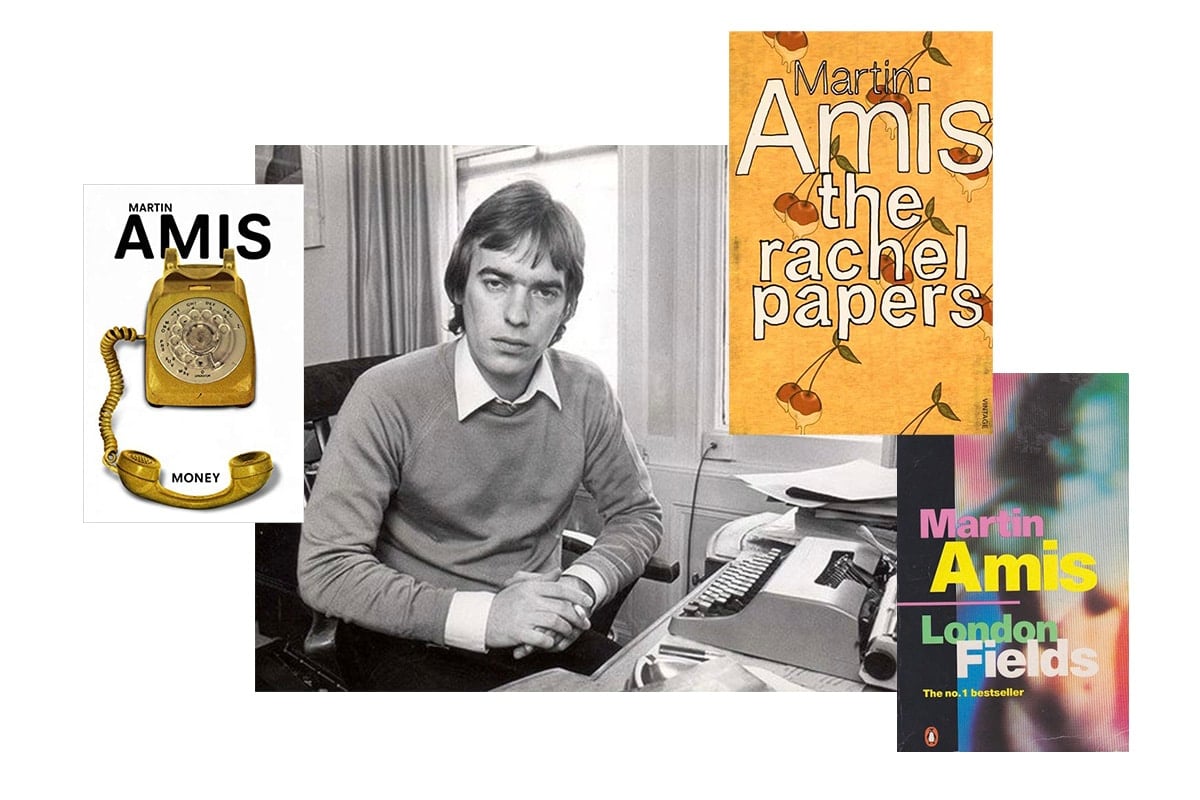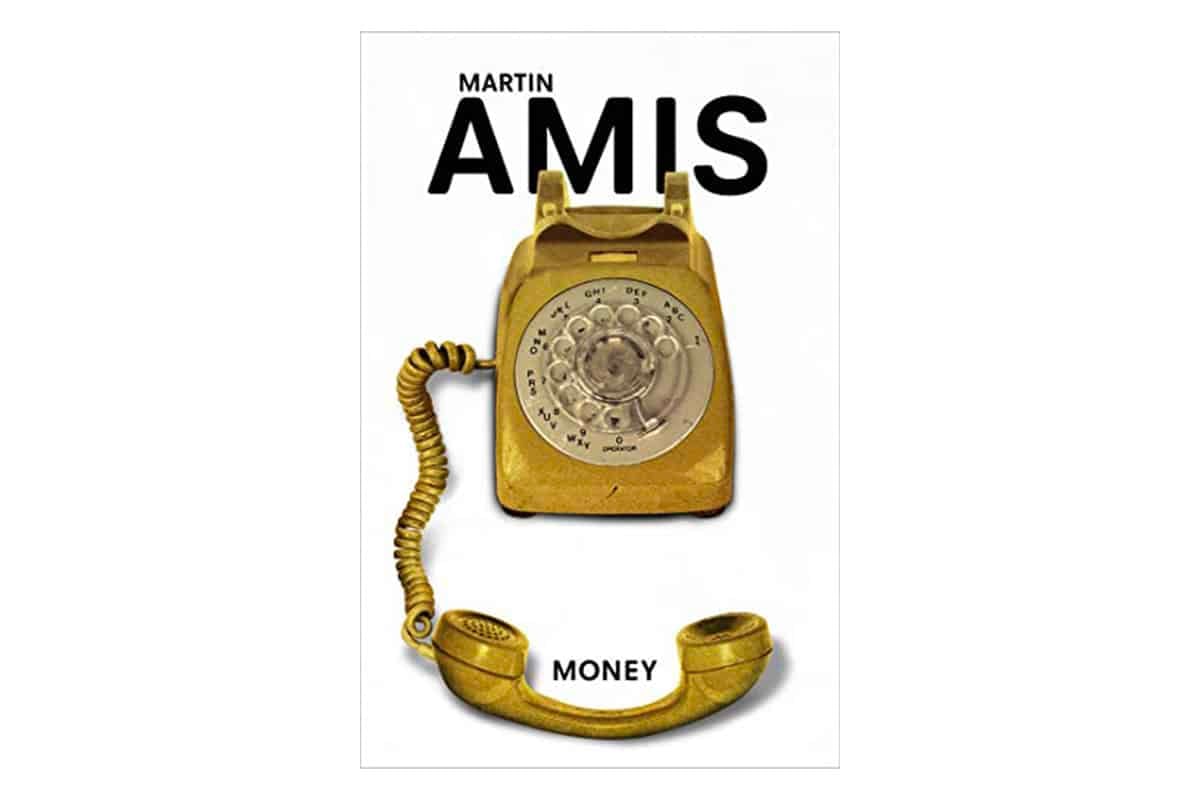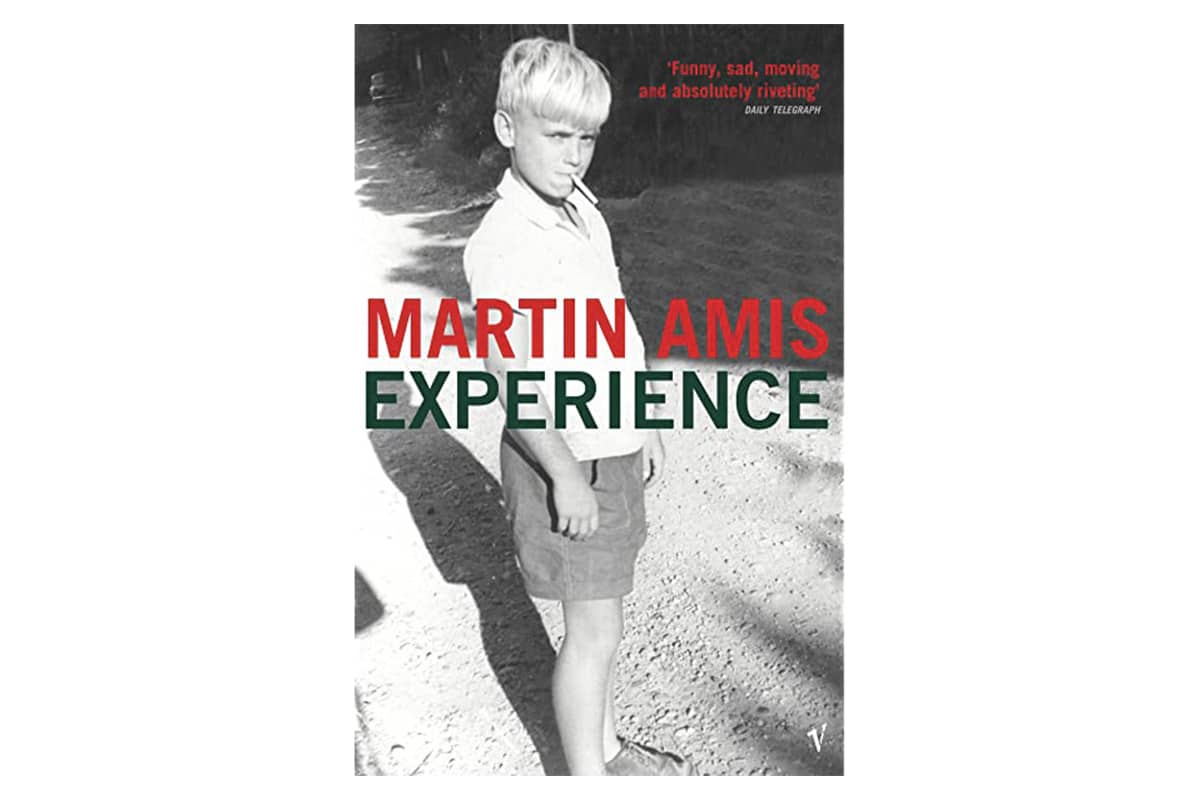
Martin Amis passed away on May 19, his wife Isabel Fonseca shared yesterday morning. The cause was oesophageal cancer and Amis was 73. The writer belonged to a generation of English authors that included the likes of Christopher Hitchens, Ian McEwan and Salman Rushdie, and was known for his scathing surveys of British and American society.
Reading Martin Amis – the son of prolific novelist Kingsley Amis – requires a lead stomach. Amis wrote about hedonism, women, low lives and London. There's this scene in The Rachel Papers where his 19-year-old protagonist rummages around in the cigarette ash of a dustbin to retrieve a used condom intended for his current conquest that makes me squirm whenever I think about it.
Amis was, in today's parlance, a nepo baby of the literary world. He studied at Oxford and had friends in high places (Julian Barnes and Tina Brown). Early on he was branded an enfant terrible. There was always a news report about him saying something controversial, and even he expressed surprise at not yet being cancelled. He was a figure people loved to hate, for all these reasons and more. But the thing about Martin Amis is that his books, and his writing, are great. Straight-talking and jammed with literary "pyrotechnics," Amis was a master of satire and dark comedy.
As we remember Martin Amis, below we bring you a list of his best books. For those wondering where to start and others thinking about scheduling a revisit.
The Rachel Papers (1973)

Written over the course of a single year, Martin Amis knew there would be interest around his debut regardless of the subject matter and used that to his advantage, publishing semi-autobiographical The Rachel Papers at 24 years old. It follows Charles Highway, a 19-year-old approaching the Oxford entrance exams and his 20th birthday, who has become obsessed with the posh and unattainable Rachel. As the blurb puts it, "Charles Highway is every mother’s worst nightmare". The depictions of women are bestial, akin to the kind of stomach-churning descriptions found in Charles Bukowski's Women. There's a conversation between Charles and his brother-in-law Norman about why the latter doesn't want his wife to have a baby, which is truly depressing. But there is something in the images of London, coming of age and class which holds.
Money (1984)

What Amis himself called a "voice novel" over one with a definable plot. Money, full title, A Suicide Note, satirises the culture of excess that dominated the 80s thanks to Thatcher and Reagan's politics. One of his best loved novels, it follows the protagonist John Self, "a consumer extraordinaire", who lives a life saturated in pornography, fast food, alcohol, cigarettes, and pills. When Self is called to assist on a forthcoming film in New York, what looks like success becomes his own downfall. If only he would properly interrogate those suspicious phone calls he's been receiving...
London Fields (1989)

If for some reason you needed to explain to aliens Martin Amis's tone, this line from London Fields would do the trick: "Keith didn't look like a murderer. He looked like a murderer's dog". And there are plenty more where that came from. Darkly funny and plenty quotable, London Fields is, when boiled down, a postmodern whodunit. There are four voices throughout, Samson Young, the narrator knocking on death's door; Nicola Six, the sexy and willing murderee; aspiring darts champion, Keith Talent; and the "foil," Guy Clinch. Who will carry out the task? Dig in and find out.
Time's Arrow (1991)

The book that won Amis a place on the Booker Prize shortlist, along with the kudos of his father, who had never finished any of his son's novel until Time's Arrow. The book follows a Nazi war criminal on his deathbed, once the lights go out, the reader joins Tod. T. Friendly as he lives his life in reverse, from suburban American hideout, hustling in New York to wartorn Europe.
The Information (1995)

The third piece in what is loosely considered Amis's London series. It opens with Richard Tull a failed writer and his best friend Gwyn Barry, who despite being of mediocre talent has managed to become a cultural icon. The tension between their two careers drives Richard to madness, distancing himself from his family to take shots at Gwyn, until he gets gunned down in the misfire. Amis shared that he saw himself as both Richard and Gwyn, and was rumoured to have received $800,000 for the book's publication.
Experience (2000)

For those with an appetite for details around the relationship of father and son – Kingsley and Martin – the authors opens up in this memoir. In Experience, Amis also unearths other happenings from his family history, including the sudden disappearance of his cousin Lucy Partington, who disappeared in 1973 only to be found in the basement of serial killer Frederick West some 20 years later.
Inside Story (2020)

The last book from Martin Amis is also his second autobiography. Inside Story acts as a companion to Experience, where he gets candid (some would say too much) about his relationship with Phoebe Phelps, the woman that inspired his eponymous Rachel, grief at the deaths of best friend, Christopher Hitchens, and mentor, Saul Bellow, and about his own writing, the book being peppered with tips for what makes good writing.
Image: Pinterest



